South Asia at brink over Kashmir and Indus Water Treaty, Bilawal warns US lawmakers
Bilawal Bhutto Zardari-led delegation engages with a bipartisan group of US lawmakers in Washington
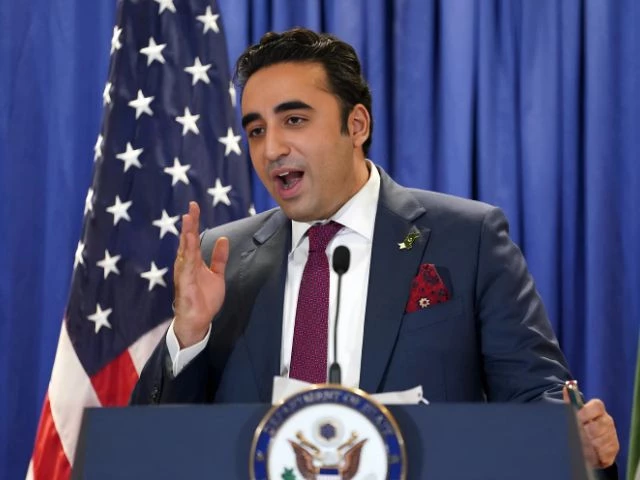
A high-level parliamentary delegation from Pakistan, led by Mr. Bilawal Bhutto Zardari, Chairman of the Pakistan Peoples Party (PPP) and former Foreign Minister of Pakistan, held a series of significant meetings with members of the US Congress on Capitol Hill today.
The delegation's visit underscores Pakistan’s commitment to peace, dialogue, and partnerships built on justice, particularly in the context of recent escalations in South Asia.
The delegation includes several prominent members of Pakistan’s Parliament and former senior officials such as Mr. Musadik Masood Malik, Minister for Climate Change and Environmental Coordination; Senator Sherry Rehman (PPP), Chair of the Climate Change Committee, former Minister for Climate Change, and former Ambassador to the US; Senator Bushra Anjum Butt (PML-N); Ms. Hina Rabbani Khar (MNA, PPP), Chair of the National Assembly Standing Committee on Foreign Affairs and former Foreign Minister; Senator Faisal Sabzwari (MQM); Engineer Khurram Dastagir Khan, former Minister of Foreign Affairs and Defense; Ambassador (r) Jalil Abbas Jilani, former Foreign Minister/Secretary; and Ms. Tehmina Janjua, former Foreign Secretary.
The delegation engaged with a bipartisan group of US lawmakers, including a key meeting with the Congressional Pakistan Caucus, co-chaired by Rep. Jack Bergman and Rep. Tom Suozzi.
During these discussions, Mr. Bilawal Bhutto Zardari briefed the members on "India’s recent acts of unprovoked aggression, including the targeting of civilians and the deeply concerning, unilateral suspension of the Indus Waters Treaty, a clear breach of international law."
He extended appreciation to the United States, particularly "President Donald Trump, for his constructive role in helping de-escalate tensions and supporting efforts towards a ceasefire."
The former Foreign Minister emphasised that "sustainable peace in South Asia hinges on dialogue, restraint, and a just resolution of the Jammu and Kashmir dispute, rather than unilateralism or intimidation."
In separate meetings with other influential members of Congress, the delegation also met individually with Senator Elissa Slotkin (D-MI), Congresswoman Sydney Kamlager-Dove (D-CA), Ranking Member of the House Foreign Affairs Subcommittee on South and Central Asia; Congressman Tom Kean Jr. (R-NJ), Member of HFAC; Congressman John Moolenaar (R-Mich), Member of the House Appropriations Committee; Senator Jim Banks (R-Ind), Member of the Armed Services Committee; Senator Van Hollen (D-MD); and Senator Cory Booker (D-NJ).
Throughout these engagements, the Pakistani delegation reiterated Pakistan’s principled stance on regional peace, counterterrorism efforts, and recent Indian aggression.
They reaffirmed "Pakistan’s commitment to peace, responsible conduct, and rejection of baseless allegations."
The delegation underscored "the urgency of dialogue on Jammu & Kashmir, an unfinished agenda of the United Nations," and stressed the imperative of "respect for international law, UNSC resolutions, and the Indus Waters Treaty, a lifeline for 240 million Pakistanis, now threatened by the dangerous precedent of weaponisation of water."
Tensions between India and Pakistan, two nuclear-armed neighbours, escalated significantly following the April 22 deadly attack in Pahalgam area of Indian Illegally Occupied Jammu and Kashmir. India swiftly blamed Pakistan-based militants for the attack, without providing any evidence to support its allegations. Pakistan has strongly denied any involvement in the attack and called for an independent probe.
India the escalated the situation implement a series of hostile measures, including closing the key Wagah border crossing, revoking all Pakistani visas, and taking the unprecedented step of suspending the 1960 Indus Waters Treaty—an agreement that governs water-sharing between the two countries. Pakistan's foreign ministry condemned the suspension, labeling it "an act of war." In retaliation, Islamabad sealed its side of the border.
The situation further deteriorated in early May, when India launched attack on Pakistani cities on May 6-7. Pakistan, in response, launched Operation Bunyan-un-Marsoos to counter the Indian threat. The military conflict seemed to reach a boiling point until US President Donald Trump brokered an "immediate and full ceasefire."
Although the violence has subsided since the ceasefire announcement, India’s actions, particularly regarding Pakistan's water rights, remain a point of contention and continue to fuel the hostility between the two nations.
Chairman Bhutto stressed the importance of trade among countries, calling it "a bridge for constructive engagement and the betterment of our people."
Members of Congress welcomed the Pakistani delegation, urging both countries to demonstrate restraint and prioritize regional peace and stability.
They reiterated the US support for the people of Pakistan and its commitment to aiding the country's economic development.





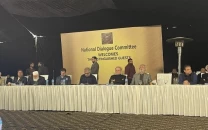


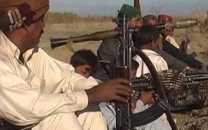
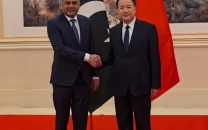



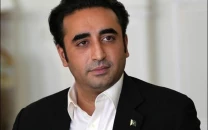
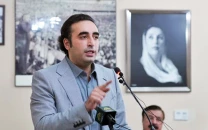



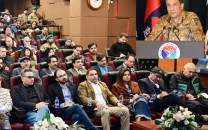







COMMENTS
Comments are moderated and generally will be posted if they are on-topic and not abusive.
For more information, please see our Comments FAQ